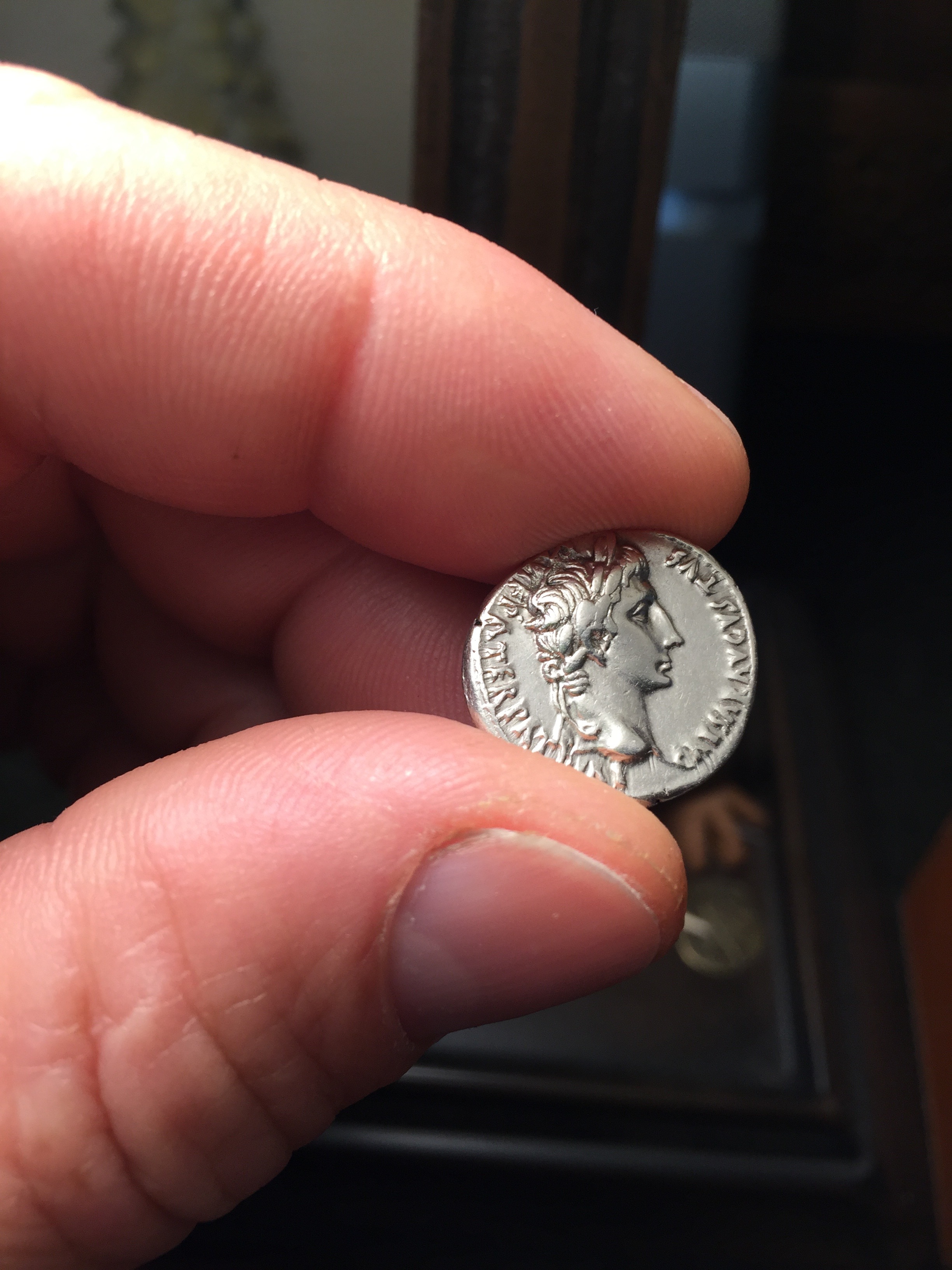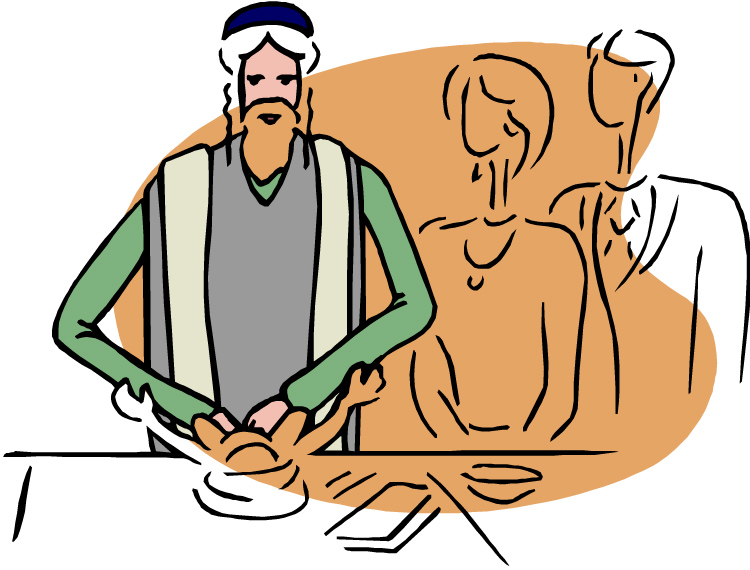Ephesians 2:8, 10, Saved … good works. Are we saved by faith through grace or by our good works? This verse clearly answers this question. One is saved by the free gift of YHVH’s grace through faith (in Yeshua). Salvation isn’t based on good works (Torah obedience), or else prideful man would boast about how good his is, and that YHVH must have saved him on the merits of his good works. However, once one is saved, and a result of his salvation one will produce the fruits good works, which is Torah-obedience. This is the definition of biblical righteousness (Ps 119:172) and shows us how to walk in the Spirit by loving YHVH with our all and our neighbor as ourself. When we live out this pattern, we become Elohim’s workmanship through Yeshua.
Tag Archives: Salvation
Obtaining Ultimate Salvation—A Process, Not a One Time Event
Deuteronomy 2:31, Begin to possess [the Promised Land]. Possession of the Promised Land was a process. This concept is as true for us as much as it was for the children of Israel.
The idea in mainstream Christianity that when you receive salvation at the beginning of your spiritual walk and that’s all there is to possessing or entering the kingdom of Elohim is a seriously incomplete one. It doesn’t fit the biblical models or the teachings of the apostolic writers about the need for the believer to persevere and overcome to the end to receive his ultimate eternal inheritance.
When this verse states that Israel “began to possess [the Promised Land],” what does this mean? Why didn’t YHVH give it to Israel all at once? What did Israel have to do to “possess” the land? What do we have to do to possess our spiritual inheritance? Does YHVH just hand it to us, or do we have to persevere, overcome and fight for it?
Leaving Egypt is a picture of a believer’s initial salvation, while entering the Promised Land is a picture of a believer’s ultimate salvation involving his glorification or the redemption of his physical body and being granted eternal inheritance at the resurrection. It’s also a picture of rewards for obedience.
Much more could be said on this subject, and the apostolic writers show us. Suffice it so say, the idea that the mainstream church propagates that receiving salvation is a one time event like getting your ticked punched to a movie or amusement park ride falls woefully short of the biblical truth and has led many people astray spiritually. Yes, the initial steps in the process are relatively easy, but then there’s the repentance, the spiritual walk, the obedience and lordship of Yeshua, the overcoming, and the levels of rewards. All of these things are precursors and steps in the process to actually receiving eternal life and a resurrected glorified body.
The children of Israel’s exodus from Egypt and their subsequent 40 years journey to the Promised Land is a picture of this process and all the steps in between. It’s a picture of the redeemed believer’s life and all of the faith-building struggles one must encounter before entering the the Promised Land of their ultimate spiritually inheritance.
The idea that the saint can have it all here and now is not a biblical one, but an ear-tickling message promoted by hireling gospel peddlers and corporate church merchandizers who have something to sell you. Beware of these false teachers who refuse to tell you the whole truth as presented in the Bible! Let the buyer beware.
Understanding the Biblical Concept of Atonement
Numbers 31:50, Make atonement.
Exploring the Concept of Atonement as It Relates to the Tabernacle and Salvation
In Numbers 31:50 we read,
We have therefore brought an oblation for YHVH, what every man has gotten, of jewels of gold, chains, and bracelets, rings, earrings, and tablets, to make an atonement for our souls before YHVH.” In a similar passage in Exodus 30:15–16, we read, “The rich shall not give more, and the poor shall not give less than half a shekel, when they give an offering unto YHVH, to make an atonement for your souls. And you shall take the atonement money of the children of Israel, and shall appoint it for the service of the tabernacle of the congregation; that it may be a memorial unto the children of Israel before YHVH, to make an atonement for your souls (emphasis added).
The question before us is this: Do these passages in the Torah imply that YHVH grants man absolution based something other than the shedding of blood, and by logical extension, does this call into question our redemption from sin through our faith in Yeshua the Messiah’s blood atonement?
The concept of atonement can be a confusing one. Some in rabbinic Jewish circles teach that the Torah (i.e. the first five books of the Bible) does not require the shedding of blood for atonement of one’s sin to occur. According to the above scripture, this could appear to be the case. Before briefly discussing the subject of atonement, let us not forget the stern warnings of the Apostle Peter when he warned end-time saints against false teachers who would lure people away from the simple truth of the gospel:
But there were false prophets also among the people, even as there shall be false teachers among you, who privily shall bring in damnable heresies, even denying the Lord that bought them, and bring upon themselves swift destruction. And many shall follow their pernicious ways; by reason of whom the way of truth shall be evil spoken of. And through covetousness shall they with feigned words make merchandise of you: whose judgment now of a long time lingers not, and their damnation slumbers not…. But these, as natural brute beasts, made to be taken and destroyed, speak evil of the things that they understand not; and shall utterly Continue reading
Victoriously Overcoming the Wilderness’ “Fiery Serpents”
Numbers 21: The Process of Overcoming—From Sin to Victory and Salvation!
- 21:4–9, The bronze serpent on the pole is a prophetic picture of salvation at the cross of Yeshua from the sting of death brought on by sin (John 3:14–15; 1 Cor 15:55–57). This is a picture of the believer’s initial salvation.
- 21:10–22:1, Here is a recounting of the Israelites’ wilderness trek before entering the Promised Land. It was a time of testing, refining, building of faith, and learning obedience for the Israelites. This is a picture of the spiritual walk of the believer through the wilderness of this physical life.
- 21:14–35, While crossing the wilderness, the Israelites had to fight and overcome the enemy—that is, those who would keep them from fulfilling their YHVH-ordained destiny to possess the land and inheritance he had promised them. First came the fighting and overcoming, followed by the victories. The life of the believer is one of spiritual struggle, as well, against the world, the flesh and the devil. (See Rom 7:14–25; 2 Cor 10:3–5; Eph 6:10–18.)
- 21:10, 14–18, Here we read how Israel was refreshed with water from the rock. Isaiah speaks about the wells of salvation (Isa 12:3). There is a springing up of joy and praise (verse 17) that comes as victory is experienced, and as YHVH makes rivers to flow out of seemingly dry and barren situations (verse 18). We, too, are called to come to the rivers of salvation, the river of life and to become a river of life ourselves to all those with whom we come into contact (John 7:37–39). Yeshua is the source of that living water; he is the spiritual Rock and source of water that never runs dry (John 4:10, 13–14; 1 Cor 10:4).
Numbers 21:4–9, Fiery serpent. The plague of fiery serpents was a righteous judgment Elohim brought upon Israel for murmuring and unbelief. Israel had “sharpened their tongues like a serpent” (Ps 140:3) and “their throat [was] an open sepulcher; with their tongues have … used deceit; the poison of asps [was] under their lips” (Rom 3:13). All this was directed at Elohim and Moses. As a result of their sin, they reaped what they had sown. Elohim loosed fiery serpents upon the Israelites to bite and sting to death the unbelieving murmurers.
The wilderness Elohim led the Israelites through was full of fiery serpents and scorpions (Deut 8:15), yet this is the only account in the Torah of these creatures ever attacking Israel. YHVH had protected them to this point, but this one time he pulled back his hand of providential protection and grace allowing them to experience the due recompense of their sinful actions. How often has our merciful Father withheld the just desserts of our faithless, rebellious and abominable action against him and graciously protected us from the full consequences of our sin? If we fail to hear his soft voice of correction he will deal more harshly with us until our attention is gained (Ps 32:8–9). All he has to do is withdraw his hand of protection that restrains the judgments we all deserve and the “fiery serpents” will likewise attack us. Remember what happened to Ananias and Sapphira in the book of Acts is an example of this (Acts 5:1–11). Job experienced a similar situation as well.
Israel’s Murmuring. Israel complained for lack of food and water. In unbelief they concluded and confessed (literally prophesied upon themselves a curse) that they would die in the wilderness. Elohim gave them the fulfillment of their faithless delusions—serpents to sting them and leave them physiologically in a parched and burning condition. (The poison of these snakes actually leaves the victim burning with a fiery pain in his body and a desperately dry and thirsty condition [See Adam Clarke’s Commentary, vol. 1, p. 684]). This occurred with the quail also. They complained with their mouths and lusted for meat and Elohim gave them so much quail that it “came out of their nostrils” (Num 11:20). Many were struck dead in judgment. What is the lesson of this story? That for which we lust or that which we fear will come upon us, for Elohim allows those very things to rise up, attack us and judge us. Why? So that the false gods of our hearts will be exposed and we will, as a result, see the error of our ways, repent and turn back to obedient faith to the one true Elohim. Few understand this method of operation of Elohim, but the Scriptures reveals this as one of the ways he deals with his people to help them to grow up spiritually.
Salvation. Israel repented and received salvation from the sting of death by looking upward toward the brass or bronze (bronze representing judgment) serpent on the pole. Of course, no less than Yeshua himself reveals to us that this serpent is a pictures himself dying on the tree as a sin offering and source of our salvation (John 3:14–15 and 12:32).
Even the Jewish sages admit that the serpent did not heal the afflicted Israelites, but looking upward unto heaven granted them salvation and healing. (See Wisdom 16:4–12)
Parallels between the bronze serpent and Yeshua
Yeshua likened his death on the cross to the bronze serpent that Moses lifted up in the wilderness (John 3:14–15). Let’s explore the spiritual implications of the bronze serpent as it prophetically pointed to Yeshua the Messiah.
- Both the serpent and Messiah were lifted up on a pole.
- Israel was to look up to the brass serpent to be healed physically; sinners are to look up to Messiah to be saved.
- YHVH provided salvation from the sting of death from no other source but the serpent. Similarly, there is salvation in no other name but Yeshua (Acts 4:12).
- If the Israelites looked at bronze serpent they were healed and lived; if sinful man looks at Messiah he will live.
- Both the serpent and the cross are merely symbols of Elohim’s grace and mercy. They simply point one to YHVH in heaven who heals those who believe him and have faith in him.
A Type of the Devil. The Bible calls the devil a great red dragon or serpent (Rev 12:3) whose venom inflames men’s sinful passions through his fiery darts aimed at humans (Eph 6:16). Fiery serpent is the Hebrew word saraph the plural of which is seraphim, which is a type of an angelic, flaming spirit (Heb 1:7). Though physical snakes bit the Israelites, this is nevertheless a picture of Satan, the fallen angelic being who is now the serpent and enemy of both YHVH and man.
For Our Example. Israel experienced these things for our examples (1 Cor 10:1–12). What they went through and how they reacted to various situations is literally a mirror held up for our benefit for us to see ourselves as we really are, so that we will not repeat their mistakes. We owe them a debt of gratitude, for we are able to gain spiritually by their experience if we will lean from their mistakes by not repeating them.
Paul (and the Bible) on Physical and Heart Circumcision
1 Corinthians 7:18, Let him not be circumcised. In this chapter, Paul advises believers to remain in whatever physical state they were spiritually called (verses 20, 24). To the unmarried, remain unmarried (verses 1, 8). To those who are married, remain married (this is Paul’s advice, not YHVH’s, verse 10), even if one is unequally yoked in marriage (verses 12–16). To those who are circumcised, remain in that state and vice versa (verse 18). If called as a slave, remain as one (verses 21–23).
With regard to circumcision, Paul’s advice doesn’t require strict adherence as his circumcision of Timothy shows (Acts 16:1–4). In that case it was more expedient for the preaching of gospel to the Jews that Timothy be circumcised, so as not to be a stumbling block to the Jews who had a high view of circumcision. This type of circumcision was acceptable, since it was not done as a salvation requirement for Timothy.
1 Corinthians 7:19, Circumcision is nothing, and uncircumcision is nothing. What is Paul saying here? Is he confused, or does he have a larger principal in view? Paul’s bottom line in all of his writings is that circumcision is not a salvational requirement. If it were, then, obviously, women could not saved! As we shall see, however, the Scriptures teach that in the future, for those in certain ministry situations, circumcision will be a requirement (Ezek 44:7, 9). To understand the issue, let’s briefly discuss what the Scriptures say about circumcision.
Some will say that circumcision of the heart (Rom 2:29) is a “New Testament” invention that happily has replaced physical circumcision. This is not quite true, for YHVH has desired his people to have circumcised hearts from the time of Moses (Deut 10:16; 30:6) and Jeremiah (Jer 4:4). What’s more, YHVH will require the priests who will serve in his millennial temple (an archetypal model of YHVH’s plan of salvation through Yeshua’s death on the cross) to not only be circumcised in the heart, but in the flesh as well (Ezek 44:7). Not only that, but all those who will enter that sanctuary, both Israelite and non-Israelite, must be circumcised physically and spiritually (Ezek 44:9).
Physical circumcision is not a requirement for salvation, and Paul teaches that redeemed believers not only can be saved without undergoing the rite of physical circumcision, but that all (including women) are circumcised through Messiah’s circumcision (Col 2:10–13; see also Phil 3:3), even as each person has “died” to sin and has been resurrected to new spiritual life through faith in and identity with his death, burial and resurrection (Rom 6:3–8).
Paul never disparages physical circumcision, except when false teachers make it a requirement for salvation, or when those who are physically circumcised parade it as a mark of spiritual superiority. Paul goes on to say that physical circumcision, however, is a sign, mark or token, and a seal (placed on someone) or an impression or stamp made by a signet ring signifying ownership, something which distinguishes one from others and by which one is known (Rom 4:11). Circumcision was a sign of Abraham’s righteousness and the faith he had in YHVH and a mark of YHVH’s “ownership” of Abraham. Faith precedes circumcision, but when one is circumcised, one commits to walk in the faith and righteousness of Abraham, and to enter into a deeper, more committed and more intimate (covenant-based) walk with YHVH Elohim. Perhaps physical circumcision as a mark of a deeper and more committed relationship with YHVH is the reason it, along with heart circumcision, will be required of all who will be allowed to not only minister in, but also to visit the millennial temple (Ezek 44:7, 9). In the past, the temple represented YHVH’s presence on earth, and it was viewed as a sort “the gateway to heaven.” In ancient times, those who sought the privilege of visiting this special and set-apart spot had to prepare themselves physically and spiritually to approach the Creator. They had to be ritually and spiritually pure, and physical circumcision was an aspect of this. For those of the priesthood who will be ministering in the millennial temple, physical circumcision will still be a requirement to fulfill covenantal, ritual cleansing and the requirements of spiritual types and shadows, for which that institution will be used to teach the unsaved peoples of the earth during the Millennium the truths of YHVH’s plan of salvation as it did in the past. Physical circumcision will be an outward sign that will (literally) go before the priest showing that he has committed himself to putting a way the filth of the world as represented by the foreskin.
Now if one is circumcised and doesn’t follow the Torah, then it’s as if he weren’t circumcised at all (Rom 2:24–29). In YHVH’s spiritual economy from Genesis to Revelation, YHVH always looks primarily at one’s heart attitude rather than at outward show involving religious rites, rituals and ceremonies. However, Yeshua clearly teaches in his Sermon on the Mount that YHVH not only prefers heart, or spirit of the law obedience, but letter of the law obedience also. He desires his people to love him with all their heart, soul, mind and strength, which involves both a letter and the spirit of the law obedience.
While physical circumcision is not a requirement for salvation (much like water baptism), in doing so, one is demonstrating one’s desire to be obedient to all the Word of YHVH including the commands of Torah. Yeshua clearly stated that not one jot or tittle of the Torah has been nullified, and that those who keep all of YHVH’s Torah commands will obtain a higher reward in his eternal kingdom than those who do not (Matt 5:17–19), and they will be able to approach closer to him in his temple in the Millennium.
A Second Chance?
1 Peter 4:6, Who are dead. (See also Rom 2:12–16; 1 Cor 5:5; Heb 12:23.) This verse seems to indicate that certain categories of dead and unsaved humans will stand before YHVH’s judgment seat (the white throne judgment of Rev 20:11–15), and will be accepted into his eternal kingdom at some basic level.
Perhaps if their hearts showed a willing disposition toward YHVH while they lived, but they didn’t go all the way in choosing him for one reason or another, they will be rewarded for the good that they did in their lifetime and will be given an opportunity to accept Yeshua on judgment day. Perhaps these are the ones Yeshua declared would be least in his kingdom (Matt 5:19).
Was Paul making reference to this in Romans 2:12–16 when he talks about those Gentiles who sinned without the law, and who will be judged based on whether they lived up to the basic law of Elohim written in their consciences?
Will these people, who lived according to the basic tenets of the Torah (e.g. not stealing, lying, committing adultery, murdering, coveting, honoring parents, and, in their own way, and adhered to a concept of a Supreme Being before whom they walked in fear without worshiping idols) be given an opportunity on judgment day to make their faith complete by accepting Yeshua’s sacrifice for their sins?
Perhaps this explanation would help us to understand Hebrews 12:23, which speaks of the spirits of just men made perfect, as well as the salvation of the thief on the cross.
James vs. Paul: Are we saved by faith or by works or what?
James 2:20–24, Faith without works is dead. James is here referring to the works of faith, not the works of the law. No man can live a good enough life to be saved by his Torah-obedience or the works of the law (Rom 3:20, 28; Gal 2:16; 3:11).
However, faith in Elohim is more than just mental ascent—“a knowing in your heart.” It has to be backed up by action (and we’re not talking about the works of the law). For example, when Elohim told Abraham to leave Babylon or to sacrifice Isaac, he obeyed by leaving that country and moving to Canaan. Moreover, many were healed in Yeshua’s ministry because they had faith in the Master and backed that faith up with corresponding action, which was the evidence of their faith.
This faith-action continuum had nothing to do with Torah-obedience per se, but had everything to do with “putting your money where your mouth is” by backing up your faith or belief with action. It is this kind of faith that James is talking about here, and this in no wise contradicts the teachings of Paul who said that no man is justified by the works of the law.
When Paul declares in Ephesians 2:8–9, “For by grace you are saved through faith, and that not of yourselves; it is the gift of Elohim, not of works…,” he was correct and not opposed to James. What’s more, Paul goes on to say in verse 10, “For we are [Elohim’s] workmanship, created in Messiah Yeshua for good works…that we should walk in them.” These good works (i.e. obedience to the Torah) are the fruits, evidence or proof of our salvation and are the works that back up our faith.
So, in summary, the Bible teaches that we need the faith (a heart that believes and wants to obey Elohim) to lead us to salvation, as well as the works of faith after we have received Elohim’s free gift of salvation as evidence that we are saved. This fact in no way contravenes the reality of salvation by grace through trusting belief in Yeshua the Messiah, which is apart from the works of the Torah-law.






